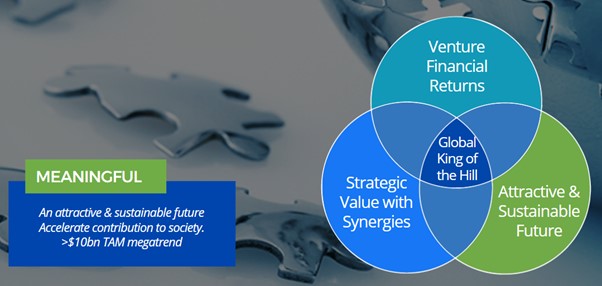The Case Study Methodology: A Pillar of Business Education
The case study methodology has long been a keystone of business education, providing students with practical, immersive learning experiences. Originating at Harvard Law School in 1870, the method was later adopted by Harvard Business School (HBS) in 1920 and has since become a dominant teaching tool in business schools worldwide. The essence of the case study method lies in its ability to present real-world scenarios that require students to analyze complex situations, make decisions, and implement solutions under uncertain conditions. This approach develops critical thinking and decision-making skills and prepares students to tackle real business challenges effectively.
IESE Business School, a pioneer in business education, has embraced this practice to prepare its students for the complexities of the business world. In 1963, HBS partnered with IESE, leading IESE to adopt the popular case method teaching approach from HBS, the first in Spain. Over time, IESE faculty began developing their case studies, establishing their influence, and emerging as a thought leader in their field. By simulating real-life business problems, IESE ensures that its students are well-equipped to identify difficulties, make informed decisions, and act decisively in their professional careers. “You spend a lot of time putting yourself in the shoes of the guy that you are representing. You just learn much faster because you have been discussing firsthand that problem or that solution” an alumni EMBA 2021 highlighted. The case study method’s effectiveness in fostering practical skills and its general adoption across various disciplines underscore its importance in business teaching.
“At IESE, our focus is on delivering the best learning experience possible, regardless of the format or context. As technologies advance, the case method also continues to evolve. Yet the essence of how executives earn best remains the same” Prof. Julia Prats.
The Story of TDK Ventures
TDK Ventures, the corporate venture capital (CVC) arm of TDK Corporation, was established in 2019 with a mission to advance innovation and drive growth in the materials, energy, cleantech, industry 5.0, mobility, and health tech sectors. Under the leadership of President Nicolas Sauvage, TDK Ventures has successfully navigated the challenges of aligning start-up innovation with its parent corporation’s core values and objectives. The venture’s goal is to invest in early-stage tech start-ups – Impact Scaling entrepreneurs who are creating a new era of sustainability and social value.
Sauvage’s vision for TDK Ventures was shaped by his extensive experience in the industry and his strategic anticipation. Before establishing TDK Ventures, Sauvage was the senior director of the ecosystem at InvenSense, a company acquired by TDK in 2017. His experience at InvenSense and his participation in an Executive Program in 2018, where he was introduced to the transformative potential of CVC, were pivotal in shaping his vision for TDK Ventures. Sauvage’s pitch to TDK CEO Shigenao Ishiguro emphasized the need for exploration beyond existing markets, a concept that resonated deeply with TDK leadership, as evidenced by the company’s motto: “Contribute to culture and industry through creativity”.
TDK Ventures operates with a global team of around 30 members spread across various locations, including San Jose, Boston, Tokyo, Bangalore, and Zhuhai. The venture firm adheres to a unique code of conduct, CODE, encapsulating its core values: Contribute to society; One team reaching for the sky; Deliver deep insights; Entrepreneurs first. Moreover, a unique value proposition, encapsulated in the term “TDK Goodness”, forging authentic partnership and open communication for mutual growth. This approach ensures that TDK Ventures remains aligned with TDK’s broader organizational goals while fostering innovation and growth.
From Success to Classroom: TDK Ventures as a Case Study
The journey of TDK Ventures from a successful story to a case study exemplifies the power of the case study methodology in business learning. By transforming real business successes into educational tools, business schools like IESE provide students with invaluable insights into the complexities of managing a CVC entity.
In the case of TDK Ventures, the case study delves into the multifaceted challenges inherent in managing a CVC entity, such as talent retention, financial uncertainties, and maintaining strategic alignment with the parent corporation. Students are tasked with analyzing these challenges, exploring potential solutions, and understanding the broader implications for future growth and development. Another EMBA 2021 alumni stated that “It’s our responsibility to come very prepared to the class because we are going to be the ones who are going to be generating this type of knowledge”. This immersive learning experience not only improves their analytical and decision-making skills but also provides a deeper understanding of the evolving landscape of the electronics industry and the imperative to maintain alignment with corporate values.
By incorporating practical examples like TDK Ventures into the curriculum, IESE ensures that its students are well-prepared to navigate the complexities of the business world. The case study methodology, with its emphasis on action learning and real-world application, remains a vital tool in shaping the next generation of business leaders. In conclusion, the case study of TDK Ventures serves as a powerful educational tool, illustrating the challenges and opportunities of managing a CVC entity.
About the Case Study: TDK Ventures, aligning corporate strategy with venture innovation.
Understand the multifaceted challenges inherent in managing a CVC entity, as exemplified by TDK Ventures, with a focus on aligning start-up innovation with the core values and objectives of the parent corporation. Explore potential pathways for future growth and development following TDK Ventures’ initial successes while considering the evolving landscape of the electronics industry and the imperative to maintain alignment with corporate values.



